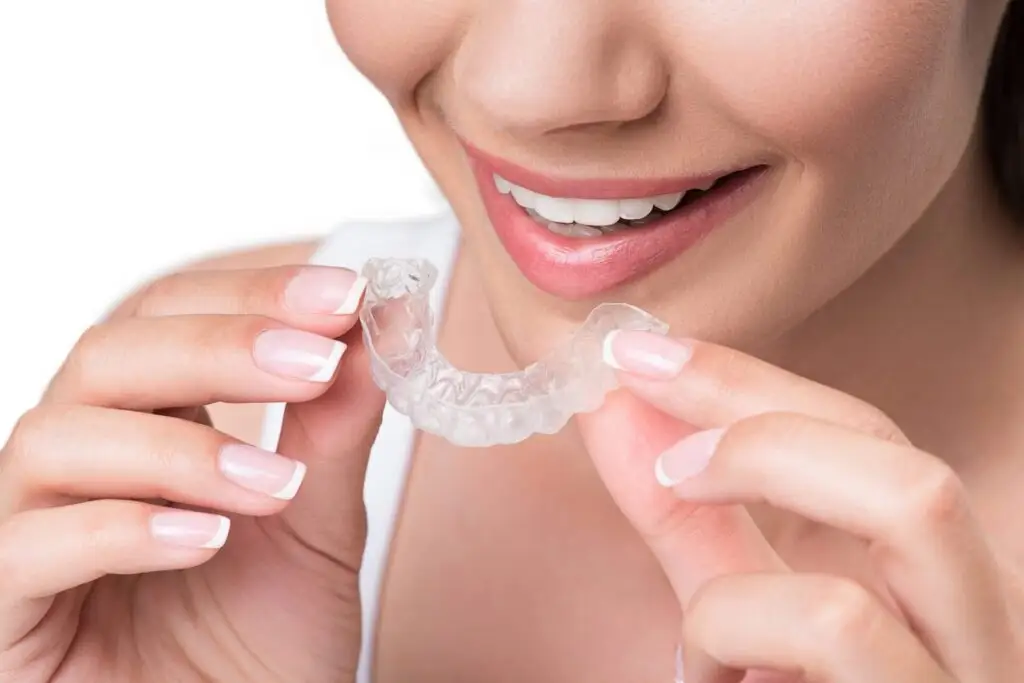Many people use night guard splints to treat teeth grinding or temporomandibular joint (TMJ) issues, but one common concern that arises during treatment is increased tooth sensitivity. If you’ve been advised to use a Night Guard Splint in Dubai, you might wonder whether the device will ease or worsen sensitivity. Understanding the connection between splint use and tooth discomfort is key to maintaining both oral health and treatment success.
What Are Night Guard Splints Used For:
Night guard splints are custom-made dental appliances worn at night to prevent the damage caused by grinding (bruxism) and clenching. They create a protective barrier between the upper and lower teeth, absorbing pressure and aligning the jaw. By doing so, they help alleviate headaches, jaw tension, and enamel wear. These splints are often recommended by dentists in Dubai for patients showing early signs of tooth damage or TMJ dysfunction.
Why Sensitivity Might Occur Initially:
Some patients report a sensation of heightened sensitivity when they begin using their night guard splint. This sensitivity may be caused by slight pressure shifts, jaw muscle adjustments, or changes in saliva production. The sensation is usually temporary and tends to subside after consistent use, but understanding the cause can help you manage expectations and take proper precautions.
- Temporary pressure on specific teeth
- Unfamiliar jaw positioning
- Increased salivation or dryness affecting enamel
- Initial tightness from a new or adjusted fit
These sensations typically resolve within the first one to two weeks of nightly use.
Differentiating Between Normal and Problematic Sensitivity:
It’s important to know the difference between normal adjustment-related sensitivity and signs of a more serious issue. Minor discomfort is expected, but sharp pain, prolonged sensitivity, or gum irritation may indicate that the splint does not fit correctly.
- Mild sensitivity: Common and temporary during the first week
- Sharp or throbbing pain: May suggest a fit issue
- Gum recession or bleeding: Could indicate improper use
- Uneven pressure: Needs evaluation by your dentist
If you're using a Night Guard Splint in Dubai and the discomfort persists, a quick adjustment at the clinic can resolve most issues.
How to Minimize Tooth Sensitivity:
There are several ways to reduce sensitivity and ease your transition into nightly splint use. Combining good oral hygiene with a few lifestyle tweaks can make a significant difference in your comfort level.
- Use toothpaste formulated for sensitive teeth
- Avoid acidic foods and beverages before bed
- Rinse with lukewarm salt water if gums feel irritated
- Don’t overtighten the splint or force it into place
- Always clean the splint after use to remove bacteria
These habits support healthier enamel and gum tissues while reducing discomfort.
Importance of Proper Fit:
A well-fitted night guard is essential for minimizing unwanted pressure on your teeth. If your splint feels too tight, loose, or uneven, it may not be distributing pressure evenly, which can increase sensitivity rather than reduce it.
- Visit your dentist for precise impressions or 3D scans
- Avoid over-the-counter options that may not align correctly
- Revisit your dentist if your bite feels misaligned after using the splint
- Wear the splint consistently for optimal adaptation
Clinics offering a Night Guard Splint in Dubai typically customize the appliance based on your bite to ensure maximum comfort and therapeutic benefit.
Long-Term Benefits Despite Short-Term Sensitivity:
While initial sensitivity may be discouraging, the long-term benefits of night guard splint use far outweigh the temporary discomfort. By consistently wearing your splint, you protect your enamel from wear, relieve jaw tension, and reduce the risk of serious dental damage.
- Prevents enamel erosion caused by grinding
- Reduces the likelihood of cracked or chipped teeth
- Eases tension in jaw muscles
- May improve sleep quality by reducing clenching
The key is patience and consistency while your mouth adapts to the splint.
When to Seek Professional Advice:
If your sensitivity continues for more than two weeks or worsens over time, consult your dentist to assess whether your splint needs adjustment. Unaddressed issues can lead to chronic discomfort or damage to dental work such as crowns or fillings.
- Prolonged sensitivity beyond two weeks
- Difficulty sleeping due to dental discomfort
- Inflammation or bleeding of the gums
- Clicking or popping sounds in the jaw when using the splint
Professional guidance ensures your splint is not only therapeutic but also safe for daily use.
Final Thoughts:
Tooth sensitivity when wearing a night guard splint is common but usually short-lived. If you’re using a Night Guard Splint in Dubai, your dentist will guide you through the adjustment phase and help fine-tune the fit to reduce discomfort. With good oral hygiene, the right splint materials, and consistent use, most patients find that sensitivity fades and the benefits—like reduced grinding, preserved enamel, and less jaw pain—far outweigh the temporary inconvenience. When in doubt, stay proactive and consult your dentist to ensure you're getting the best results from your night guard therapy.

